
In one sample of 20 centres, half had no signed contracts on file, and several showed signs of overcharging or non-compliance with standards. Kildare featured in this sample through a guesthouse contracted at €80 per person per night.
Major weaknesses in how the State manages accommodation contracts for international protection applicants have been highlighted in a report published by the Comptroller and Auditor General.
At the end of 2024, more than 32,700 people were living in State-provided centres, the majority in emergency commercial accommodation.
Expenditure reached €1.1 billion in 2024, a sharp increase over recent years, with most of the money going to hotels, guesthouses and other private providers.
For more than a third of the 40 payments examined, the invoiced rates could not be verified because signed contracts were missing.
In one case, a provider billed for more residents than the contract allowed, resulting in a potential overpayment of €11,600 in a single month. At another site, inspectors found the State was being charged about €15,000 each month for three rooms that were not in use.
For the invoices reviewed, there was no evidence that IPAS cross-checked providers’ claims about capacity or occupancy against its own records or the weekly registers submitted.
As of 24 June 2025, IPAS figures showed an average occupancy rate of 78.5% across the sample, leaving 1,636 vacant beds.
But follow-up calls revealed that 368 of these beds - about 22% - were not actually available.
Since payments are tied to bed availability, this suggests the State may have been significantly overpaying, with potential savings if monitoring were strengthened.
Emergency accommodation is generally exempt from VAT, but catering is taxable at 13.5%.
In half of the ten contracts reviewed, invoices bundled accommodation and catering into a single VAT-inclusive rate, without separating the charges.
IPAS did not consistently check the VAT applied, according to the report.
In December 2023, it discovered that one provider had overcharged a total of €7.4 million in VAT across multiple properties.
Refunds of €1.5 million were issued, but the Department of Justice confirmed that recovery of the remaining balance is still ongoing.
The Department of Justice has since inspected the property and says a forensic review of the records is under way to determine the amount to be recovered.
By March 2025, the Department of Children, Disability and Equality had uncovered about €1.3 million in overpayments linked to nine hybrid accommodation arrangements. These funds have since been recovered.
Separately, by late August 2025, IPAS identified a further €5.1 million in overpayments arising from contract breaches across roughly ten cases. The issues span periods between 2023 and July 2025. Most providers have agreed repayment plans, while two cases remain unresolved.
Site inspections found that some centres were using bunk beds, in breach of national accommodation standards. Their use can reduce the minimum space allocated to each resident, creating overcrowding and potentially breaching contract terms.
Providers are also required to show evidence of applications to local authorities when properties are repurposed or used for a different purpose. Yet, out of the 20 properties reviewed, only four had such evidence on file.
The Department of Justice said new controls were introduced following the rollout of the 'BedSpace' bed management system in February 2025.
They said a dedicated team now audits bed availability against contracted capacity, with escalation routes through contract management if issues arise.
They said that from 2025, invoices are only accepted if they specify the rate, occupancy, and number of days being billed.
They explained that this allows capacity and occupancy claims to be cross-checked against contracts and registers.
They also said procedures are now in place to ensure consistent verification and that an additional operating procedure for payment approvers has been finalised.
Where VAT queries arise, providers are instructed to confirm treatment with Revenue, according to the Department.
They said payment approvers are also required to check that beds claimed for international protection applicants are not duplicated with those claimed for beneficiaries of temporary protection under hybrid arrangements.
The review, however, found that in many cases the Department of Justice could not produce signed contracts, fire safety certificates, or proof of ownership and planning permission for some of the properties it was paying for.
In one sample of 20 centres, half had no signed contracts on file, and several showed signs of overcharging or non-compliance with standards.
Kildare featured in this sample through a guesthouse contracted at €80 per person per night.
While the Kildare guesthouse was recorded as having full documentation, the report warned that “complete” files did not always mean the documents were valid or up-to-date.
The report concluded that while the Government plans to reduce reliance on private providers by expanding State-owned capacity by 2028, current practices leave the State exposed to overpayments, weak oversight, and safety concerns.
Justice Minister Jim O’Callaghan said over 100 accommodation contracts have been renegotiated.
He also says the Government is aiming to provide 14,000 state accommodation units by 2028.



 Kfm Obituary Announcements (Saturday)
Kfm Obituary Announcements (Saturday)
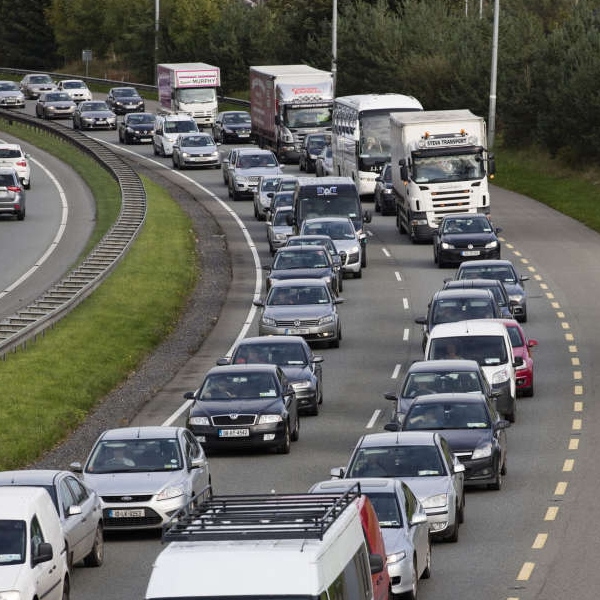 Sharp Rise In M9 Collisions With Garda Call-Outs Up Year-On-Year
Sharp Rise In M9 Collisions With Garda Call-Outs Up Year-On-Year
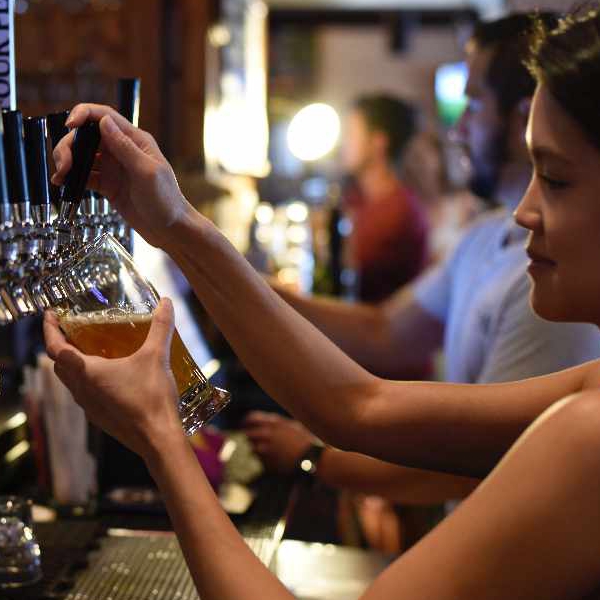 Councillor Seeks Clarity On How Often Nightclubs and Late Bars In Naas Are Inspected For Fire Risks
Councillor Seeks Clarity On How Often Nightclubs and Late Bars In Naas Are Inspected For Fire Risks
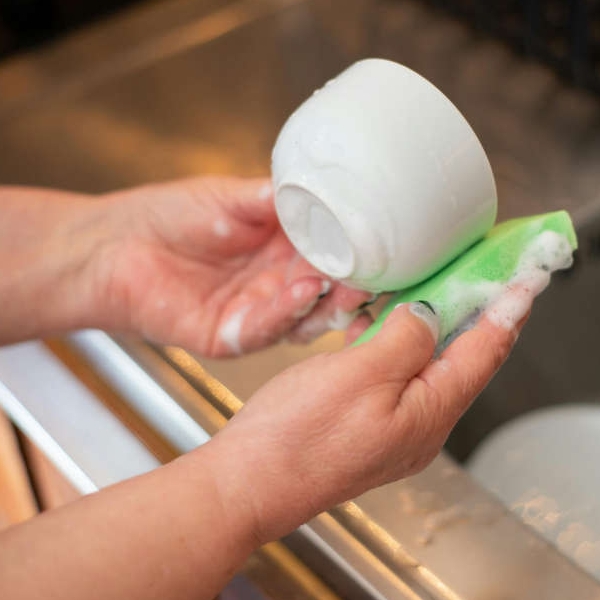 Unpaid Eight-Month Work And Training Placement For Adults With Disabilities Branded "Extremely Unfair"
Unpaid Eight-Month Work And Training Placement For Adults With Disabilities Branded "Extremely Unfair"
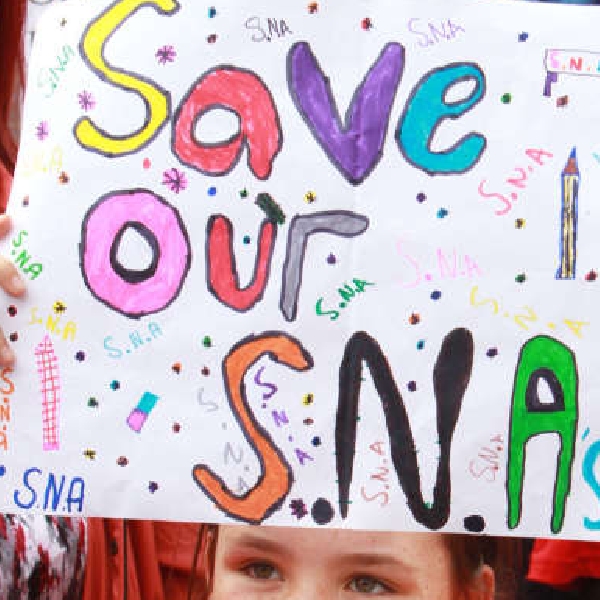 Department Of Education Defends Kildare SNA Cuts Amid Claims Of Reduced Need At Some Schools
Department Of Education Defends Kildare SNA Cuts Amid Claims Of Reduced Need At Some Schools
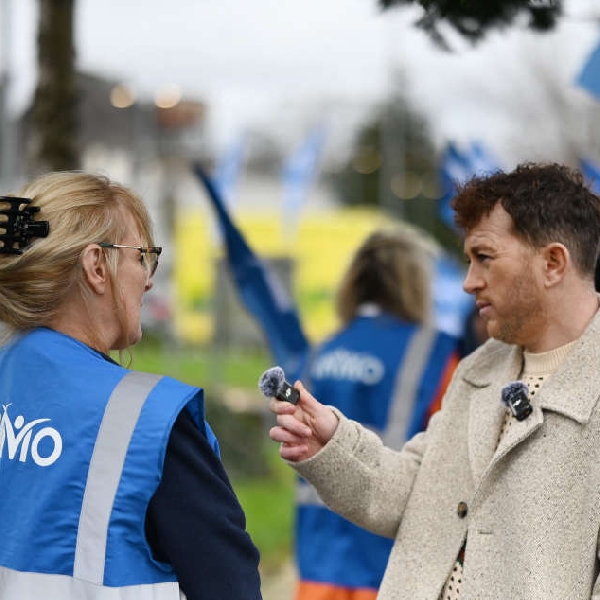 Naas Nurses Threaten Escalation As Staffing Row Deepens
Naas Nurses Threaten Escalation As Staffing Row Deepens
 Driving Tests Face Disruption As RSA Testers To Strike Next Week
Driving Tests Face Disruption As RSA Testers To Strike Next Week


